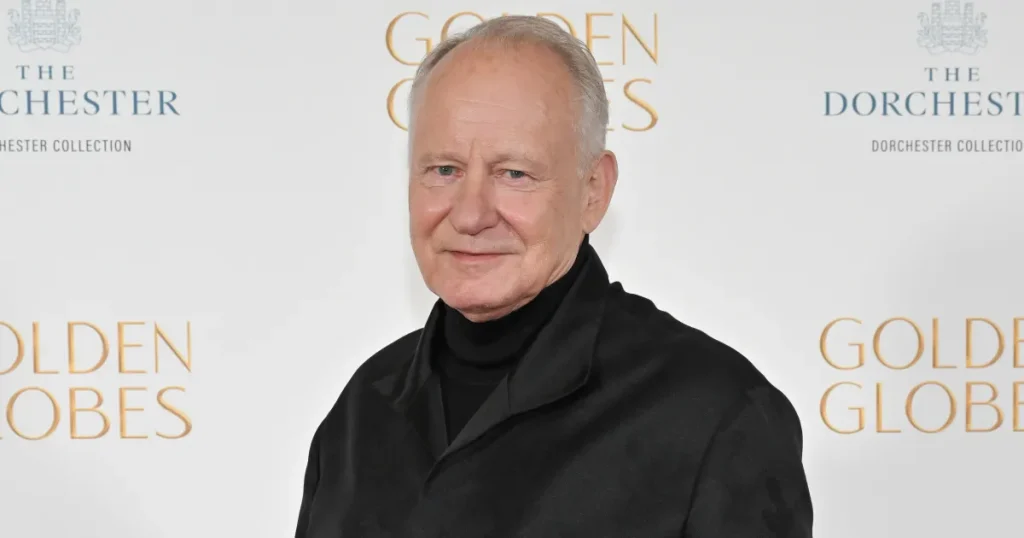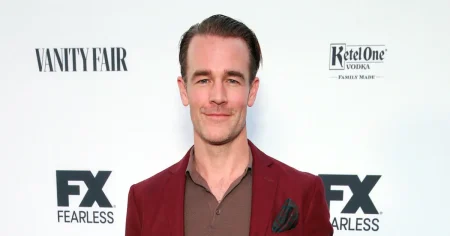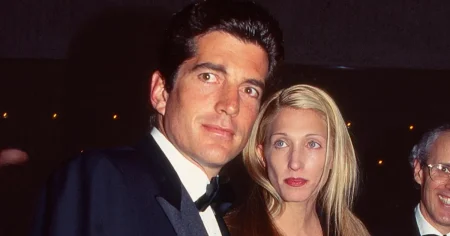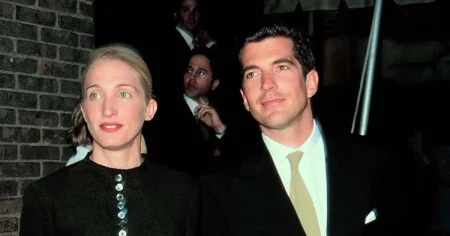Stellan Skarsgård: On Family, Fame, and Defending His Children Against the “Nepo Baby” Label
In a candid interview with Vulture, veteran actor Stellan Skarsgård opened up about the challenges his youngest son faces due to his famous family name. The 74-year-old father of eight spoke with emotional honesty about how his 13-year-old son Kolbjörn has been cruelly labeled a “nepo baby” by classmates, leading to isolation at school. “When his pals at school call him nepo baby, he gets so sad. He doesn’t have any friends at school,” Skarsgård revealed, highlighting the real human cost behind a term that has become casually tossed around in entertainment discussions. Despite his young age, Kolbjörn has already built an impressive resume, appearing in the miniseries “Clark,” “Kenny Starfighter,” and several other productions including the Swedish horror series “Färjan.” His father firmly dismisses the notion that family connections alone can sustain a career: “Nobody would hire you, at least not for anything good, if you’re not good enough.” This protective stance comes from a place of genuine parental concern, showing how even for established Hollywood families, the intersection of fame and childhood can be particularly painful.
The conversation coincides with Skarsgård’s latest film “Sentimental Value,” which explores themes remarkably relevant to his own life experiences. In the film, he portrays Gustav Borg, a director trying to reconnect with his estranged daughters while working on a screenplay about his mother’s life before her suicide. This role has prompted Skarsgård to reflect deeply on the inherent tensions between creative pursuits and family responsibilities. “Your work is you to such a big extent. It’s not like being an accountant. If you’re a painter, if you’re a musician, you go to work with you and your own material. Combining that with family life is hard,” he observed. This honest acknowledgment of the creative person’s dilemma resonates because it doesn’t offer easy solutions, but rather articulates the complex balancing act that artists with families must navigate. Skarsgård worries that becoming exclusively focused on fatherhood might mean “you reduce yourself,” suggesting that maintaining creative identity benefits both the artist and, ultimately, their children.
Despite these challenges, Skarsgård has managed to foster a remarkable creative legacy within his own family. Seven of his eight children have pursued careers in the entertainment industry, including well-known actors Alexander, Gustaf, Bill, and Valter Skarsgård. This impressive family tree could easily be viewed as the quintessential example of Hollywood nepotism, but Skarsgård sees it differently. He shares Kolbjörn and Ossian (16) with his current wife Megan Everett, while his older children—Alexander (49), Gustaf (44), Sam (43), Bill (35), Eija (33), and Valter (29)—are from his previous marriage to My Skarsgård. Rather than viewing his parenting as limiting his creative expression, he believes the stimulation from his work actually enriches his family life: “You are more fun to the kids when you come home and tell them a story that you can’t tell them if you haven’t been stimulated.” This perspective challenges the notion that career and family must be at odds, suggesting instead that meaningful work can enhance parental relationships when approached thoughtfully.
The “Mamma Mia” actor also revealed the depth of his connection with his children, characterizing their relationship as built on authentic respect rather than patriarchal authority. “I have a very good relationship with my kids. I wouldn’t have spent 50 years with them otherwise,” he noted with characteristic dry humor before adding, “But they have no respect for me just because I’m their father. Because that’s bulls***. You shouldn’t be respected for five minutes of joy.” This refreshingly honest approach to parenting rejects the notion that respect is automatically conferred by biological connection, suggesting instead that it must be earned through genuine engagement and relationship-building. In a Hollywood landscape often defined by image management and carefully crafted public personas, Skarsgård’s willingness to speak so frankly about family dynamics feels both revolutionary and deeply human, acknowledging both the joys and complexities of raising children while pursuing a demanding creative career.
Throughout his decades-long career, Skarsgård has prioritized keeping his family together even when work has taken him abroad. He described elaborate arrangements to maintain family cohesion during international filming projects: “You usually have to bring your wife’s friends because otherwise she will be alone in a foreign city babysitting. You have to get some of the kids’ friends. They’re a social functioning unit.” This commitment was exemplified during the filming of the first Exorcist movie in Rome, where he arranged for “43 Swedes living in Frescati” to create a vibrant community for his family while he worked long 12-hour days as the lead actor. Despite seeing his family primarily on weekends during this intense filming period, he created an environment where “the house was vibrating with joy because they were having a party.” This approach to family management reveals Skarsgård’s understanding that maintaining strong familial bonds requires thoughtful planning and investment, even when it means “there wasn’t that much left” from his substantial movie earnings.
As the entertainment industry continues to debate the concept of nepotism and its impact on opportunities, Skarsgård’s reflections offer an important counterbalance—reminding us of the human beings behind these discussions. His defense of his 13-year-old son highlights how casual labeling can have profound emotional consequences, particularly for children still forming their identities. At the same time, his philosophical musings on the relationship between creative fulfillment and effective parenting suggest that these aspects of life need not be in competition. Through his own example—raising eight children while maintaining a respected international acting career spanning five decades—Skarsgård demonstrates that family success is measured not by headlines or industry achievements but by the quality of relationships built over time. His story serves as a powerful reminder that beneath the glamour and controversy of Hollywood dynasties are real families facing universal challenges: balancing work and home life, protecting children from unnecessary pain, and creating meaningful connections that transcend professional accomplishments.















